Democratizing Knowledge: Faculty Research in the Humanities (Part IV)
Democratization, internationalization rewrite rules of humanistic scholarship

The College of Arts and Sciences (A&S) thrives on transdisciplinary mettle—from Syracuse Symposium’s yearlong survey of “Belonging,” exploring issues of structural and political power, as well as interpersonal relationships, to the Mellon-sponsored Democratizing Knowledge (DK) Summer Institute, a multi-institutional initiative devoted to the concept of “Just Academic Spaces.”
Chandra Talpade Mohanty and Linda Carty are the masterminds behind the DK Summer Institute, preparing for its third and final year at Spelman College in Atlanta. (Previous institutes took place at Rutgers and Syracuse in 2017 and 2016, respectively.) Funded by the Andrew W. Mellon Foundation, the institute serves as a think tank for re-envisioning the Academy’s predominantly Eurocentric knowledge base and as a model of exchange between community- and scholar-activists. “By integrating gender, sexuality, class, race, ability and indigenous and transnational experiences into our curricula, we are dismantling structures of inequity and exclusion,” says Carty, associate professor of African American studies (AAS) in A&S. “In their place is what we hope is a newfound respect for experiential knowledges and subjugated histories.”
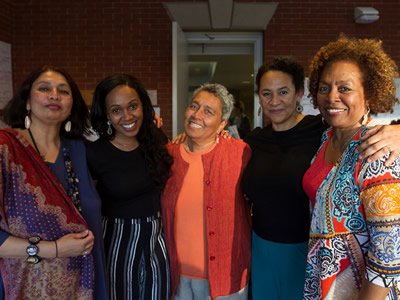
The DK Summer Institute grew out of the campus-wide DK Project, launched by an interdisciplinary collective of faculty in 2009 to make knowledge more open, inclusive and democratic. Mohanty says deeply collaborative initiatives such as the DK Project help Syracuse define and produce political discourse. “The Academy is becoming increasingly neoliberal, militarized and actively resistant to dissenting intellectual positions,” says Mohanty, Distinguished Professor of Women’s and Gender Studies and Dean’s Professor of the Humanities in A&S. “Democratizing Knowledge, which builds community spaces of dissent and freedom, is necessary for the very survival of left, feminist, queer, anti-racist and anti-imperalist faculty and students.”
Mohanty thinks the humanities provide the intellectual and practical grist for a more just Academy—and, ultimately, a more just society. She lists a number of departments and programs at Syracuse, including AAS, disability studies, Latino-Latin American studies, LGBT studies, Native American and indigenous studies, and women’s and gender studies, that can be powerful antidotes to racist, divisive thinking.
The A&S theorist also is excited about the DK Project’s role in fostering the internationalization of the humanities. “We do this in ethical ways that challenge the cultural imperialism of neoliberal projects on internationalization,” Mohanty explains. “More than a catchphrase open to myriad interpretations, internationalization usually entails study abroad programs and branch campuses. At Syracuse, this expands to include international research and collaborations with colleagues abroad, all with the goal of fostering a more culturally diverse campus.”
Hayley Cavino G’09, DK’s program coordinator, is interested in how humanities democratizes research. She and Marcelle Haddix, Dean’s Associate Professor and chair of the Reading & Language Arts Department in the School of Education (SOE), oversee a new lecture series called “Creating New Publics: Understanding the Power of Place,” exploring how curricular and pedagogical planning support the needs of a diverse student body. Rethinking the University in an inclusive way, Cavino explains, turns students into more responsible global citizens.
“We often discuss the relationship between Syracuse University and the community—from the perspective of community partners, who are part of the lecture series, and students, faculty and staff, who are embedded in their communities,” Cavino says. (Bringing Theory to Practice, an independent organization in partnership with the Association of American Colleges and Universities, supports “Creating New Publics” through a Campus Dialogue Grant.) “We also look at how the study of structures, history and social practices of the University can inform the current moment, and how feminist, anti-racist and ethnographic theorizing and methodologies, histories of minority representation and narrative implemented from a multidisciplinary standpoint can support instruction that is collaborative and cognizant of difference.”
Cavino credits the success of “Creating New Publics” to the involvement of inner-city community partners, including the Dunbar Association, La Casita Cultural Center (based in A&S), the Skä-noñh Great Law of Peace Center and ArtRage. “We are invested in exploring connections between the University and the broader community, using humanistic curricula and pedagogy to democratize knowledge,” she adds.
Internationalization abounds in other forms at Syracuse. Amanda Eubanks Winkler believes it is a personal matter, down to the kinds of people in her classroom. Recently, she taught “Music and Gender” (HOM 494), which included several foreign-born and first-generation students. “We had rich discussions about how gender, sexuality and musical performances intersect in culturally proscribed ways, discussions that would not have been possible without the global perspective of these diverse students,” says Eubanks Winkler, who, coincidentally, is a dual British-American citizen. “The government of the United States is pursuing an ‘America First’ agenda, but globalization will march onward, regardless of the policies forwarded by the current administration. For our students to compete in a global landscape, they must be well-informed citizens of the world, capable of critical thinking. The humanities are well-equipped to foster these skills.”
Bridging theory and practice permeates other initiatives on campus, such as “REAL Talks.” Short for “Resisting Exclusion through Activism and Leadership,” the series is the brainchild of Chris Eng, Biko Gray and Susan Thomas—professors of English, religion and education, respectively. Like the DK Project, “REAL Talks” uses humanities tools to tackle real-world problems and inequities. For instance, Eng is preparing to moderate a discussion about rape culture. “In a political climate that encourages exclusionary rhetoric and practices, university communities have to grapple with what it means to be truly committed to creating spaces of inclusion and belonging,” he says. “The nation’s reckoning—or lack thereof—with racial and gendered violence, economic crisis, exclusionary immigration and foreign policies, and social unrest has directly affected university communities. It raises questions about the responsibilities we have to these issues.”
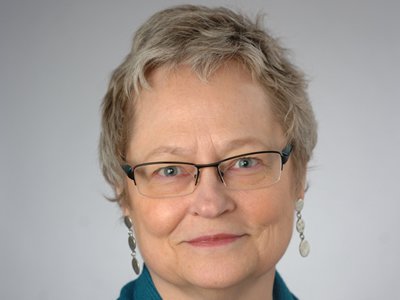
“Language is the foundation for inter-cultural understanding,” says Carol Babiracki, an ethnomusicologist in A&S who directs the South Asia Center, based in the Maxwell School. She says language not only communicates content, it also shapes worldviews, providing new perspectives and pathways for cooperation, empathy, and understanding. “Language learning is probably the humanities in its purest form,” says Babiracki, also associate professor of music history and cultures in A&S. “Linguistic science helps us understand human knowledge and behavior. It is at the core of what we humanists do.”
Leave it to Jaklin Kornfilt, professor of linguistics and director of both the linguistic studies and computational linguistics programs in A&S, to put a fine point on the issue. She says that, because language is a central human phenomenon, it helps us make sense of our world. “We are the only living beings whose systems of communication have certain characteristics [that are] not found in systems of communication used by non-human living beings,” says Kornfilt, a theoretical linguist who oversees the Turkish language program. “How human beings can decode utterances they have never heard before, or how children, at a very young age, can utter complex sentences and develop intuitions about well-formed utterances, even though the ‘data’ they are exposed to is largely ‘faulty,’ is remarkable. Linguistics bridges science and the humanities, helping us describe and explain nature in a predictive way.”
Researchers consider language a human property—an innate ability that also is inherently creative. The writing of poetry or narrative prose, for example, is a form of self-expression that is part of human life and, thus, part of the humanities.
A&S linguist Tej Bhatia regards language as the cradle of human inquiry. “Language is a repository of human experience and vast knowledge. It is critical for human relations,” says Bhatia, professor of linguistics and director of South Asian languages.
Like Kornfilt, he believes linguistics, as well as the humanities, is uniquely interdisciplinary and international. Witness the piece on forensic linguistics that the Alfred P. Sloan Foundation commissioned him to write, in conjunction with the 2017 premiere of the Discovery Channel’s series “Manhunt: Unabomber.”
“The show underscored the role of language and forensic linguistic methods in evidence-gathering and criminal tracking,” says Bhatia, newly elected president of the International Association for World Englishes. “[The writing assignment] also reflected the growing internationalization of the humanities. Besides forensic linguistics and cognitive linguistics, the field is redefining the possibilities of global communication through multilingualism and world varieties of Englishes.”
One of Bhatia’s current projects is the study of multilingual schizophrenia, involving psychiatrists from the prestigious All India Institute of Medical Sciences in New Delhi. “The humanities offer opportunities to gain new insights into the deeper workings of the human mind. They help us come to grips with issues such as trauma and mental health,” he says.
Adds Kornfilt: “Applying scientific inquiry to humanistic issues has been going on for a long time. Saving dying or endangered languages from oblivion, however, is a strongly emerging area. We pay close attention to the recording, transcription, description and analysis of languages and dialects, some of which may not even have a writing system. Almost all of these endeavors are based on international collaborations.”
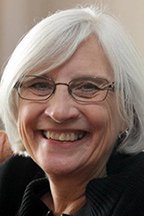
Humanistic study has always been international in scope. During Antiquity, ideas about human society and culture—language, literature, philosophy and politics—flowed across borders of civilizations. (Some scholars trace the origins of the humanities to the development of language, itself.) It was during the 1800s, however, that the German model of disciplinary specialization came into vogue. The shift forced the natural and human sciences into two distinct cultures, irrevocably changing the Western Academy.
“This included judgements about which traditions were worthy of study, thus narrowing the international focus of the curriculum,” says Syracuse professor Lois Agnew. “The assumed superiority of a canon comprising texts derived from Greco-Roman and European traditions has recently come under increasing scrutiny. The focus on a more global scope, acknowledging the study of texts, ideas and cultures from many civilizations, is crucial to humanistic understanding.”
In addition to being associate dean of curriculum innovation and pedagogy in A&S, Agnew is associate professor of writing studies, rhetoric and composition. She reserves special praise for entities such as the Syracuse University Humanities Center for supporting long-established research traditions (particularly in the disciplinary humanities), while setting the stage for emerging interdisciplinary fields, ranging from gender, sexuality and disability studies to research into post-humanism and Third-Wave Feminism. “I think inquiry into the arts, humanities and sciences is intricately connected,” Agnew continues. “Many people are aware that the problems society faces can be addressed by drawing on diverse disciplinary perspectives. It entails the recognition that cultural competence enriches the impact of scientific discovery, while humanists benefit from scientific knowledge that offers useful guidance for informed decision-making about social concerns.”
Another A&S success story is the “Syracuse Philosophy Annual Workshop and Network” (SPAWN) conference. Every summer for the past 13 years, philosophers from around the world have converged on campus for small-group workshops about a specific topic. Each invitation-only workshop joins a young presenter (i.e. someone who has earned a Ph.D. in the past decade) with a senior commentator. Both engage in a lively debate, while considering new, current and emerging issues.
Last year’s SPAWN, which tackled the fundamental nature of reality, featured 10 junior speakers, eight senior commentators and seven workshop chairs from such prestigious institutions as Stanford, MIT, Notre Dame, Oxford and Yonsei University in Korea.
“There are many philosophy conferences, but what makes SPAWN distinctive is the idea of putting young philosophers in the primary role as main presenters, with senior figures serving as commentators,” says Professor Robert Van Gulick, SPAWN’s founding academic organizer. “This approach gives SPAWN an intergenerational feel.”
SPAWN’s forum is diverse and inclusive, but with the usual scholarly roles reversed. “Most tenured faculty—not just ones in philosophy—wish they could have had this kind of opportunity, starting out,” he adds. This is one way Syracuse is rewriting the rules of faculty scholarship.”
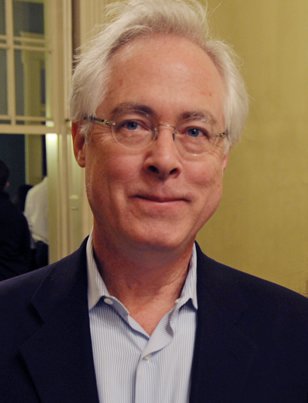
Louis Menand, a premier scholar of American studies, says the humanities occupy a special place in the modern research university. “Some humanities work is research-based, but a lot of it is hermeneutical—not the kind of work that yields reproducible results,” says Menand, the Anne T. and Robert M. Bass Professor of English at Harvard, as well as a longtime contributor to The New Yorker. “My own view is that, since the 1950s, the humanities have tried to find theories and methodologies that are somewhat codifiable, and could constitute claims to knowledge comparable to scientific claims. This has always been a somewhat sketchy enterprise, which is fine when times are flush.”
Menand warns of the Balkanization of the humanities—the persistence of relatively small disciplines that are “artificially walled off” from one another. These fields are continually on the chopping block because they cannot attract enough majors, he says, but they are vital to the humanities, as a whole. “We ought to reinvent the disciplines,” he says. “Of course, this will never happen. But it is killing us off, one by one.”
Adding insult to injury is the Trump Administration, which hopes to eliminate federal arts and humanities funding altogether. Twice, Congress has rebuffed his attempts. In March 2018, the president signed a $1.3 trillion spending bill that, surprisingly, called for a slight increase of $3 million, or $153 million each, in the funding levels of the National Endowment for the Arts (NEA) and the National Endowment for the Humanities (NEH).
Still, hundreds of other agencies and programs, including the Corporation for Public Broadcasting (CPB), remain in Trump’s crosshairs. “These budget proposals are the first steps in a very long process,” says the Humanities Center’s Vivian May. “Organizations such as the NEA, NEH and CPB make a real difference in the lives of thousands of communities. I am confident they will not go down without a fight, and am proud of their ‘business-as-usual’ stance, in the face of possible defunding.”
In March, Carol Babiracki was part of a New York State delegation that traveled to Washington, D.C., to persuade Congress to continue funding Title VI and Fulbright-Hays (FH), international service programs of the U.S. Department of Education. Title VI is a domestic program supporting the training of American students and faculty in languages and international area studies. At Syracuse, Title VI finances the Syracuse-Cornell National Resource Center for South Asian Studies, as well as various Foreign Language and Area Studies (FLAS) grants, which, coincidentally, have netted Syracuse more than $1 million since 2014.
"One of our most important endeavors is to spread this training beyond Syracuse to teachers and students in K-12 programs, community colleges and schools of education throughout Central New York," Babiracki says. "Title VI supports language instruction in the United States and abroad, seminars, conferences, group projects abroad and outreach to help develop a globally competent workforce."
FH is equally important to Syracuse. With its emphasis on non-Western foreign languages and area studies, FH aims to deepen knowledge of areas of the world not generally included in U.S. educational programs. "FH is building a cadre of students, educators and other professionals with deep global expertise. Their programs increase mutual understanding between our country and the rest of the world," Babiracki adds.
In the latest in a series of essays in The Washington Post, Gerald Greenberg makes a convincing case for humanities research. “The ability to process information and to deal with difficult situations is important to everyone just to get through everyday life,” writes Greenberg, a linguistics professor and senior associate dean in A&S. “It is also important for dealing with contemporary global issues at local, national and international levels. We see time and time again, however, that a lack of appreciation of the humanity involved in any situation can lead to undesirable results.”
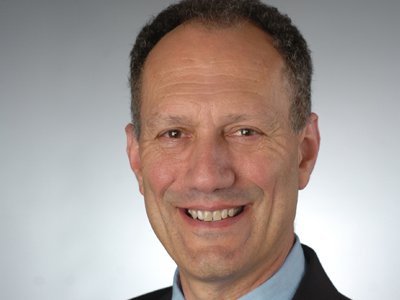
Greenberg is part of a growing cadre of scholars concerned less about what the humanities are (or are not), and more with what they do for people studying them. Certainly, the STEM fields are essential, but better decisions seem to arise when diverse opinions and ideas are considered. “[Studying the humanities] encourages reflection, and provides one with an appreciation and empathy for humanity. This is why critical thinking done in the humanities goes beyond problem solving,” Greenberg says.
More than a decade ago, a U.S. Bureau of Labor Statistics magazine published an article titled “What Can I Do with My Liberal Arts Degree?” Greenberg believes the humanities—and liberal arts, in general—move beyond the search for the immediate and pragmatic. “Even if we cannot agree on what they are, the humanities are critical to our survival,” he says. “Given the state of the country and the world today, they are more important than ever.”
With a wink and nod, Greenberg adds, “Maybe it’s time to ask, ‘What Can’t I Do with My Liberal Arts Degree?’”
Featured
Chandra Mohanty Distinguished Professor and Department Chair
Linda Carty Associate Professor Emerita
Carol Babiracki Research Associate Professor and Fleming Trust Faculty
